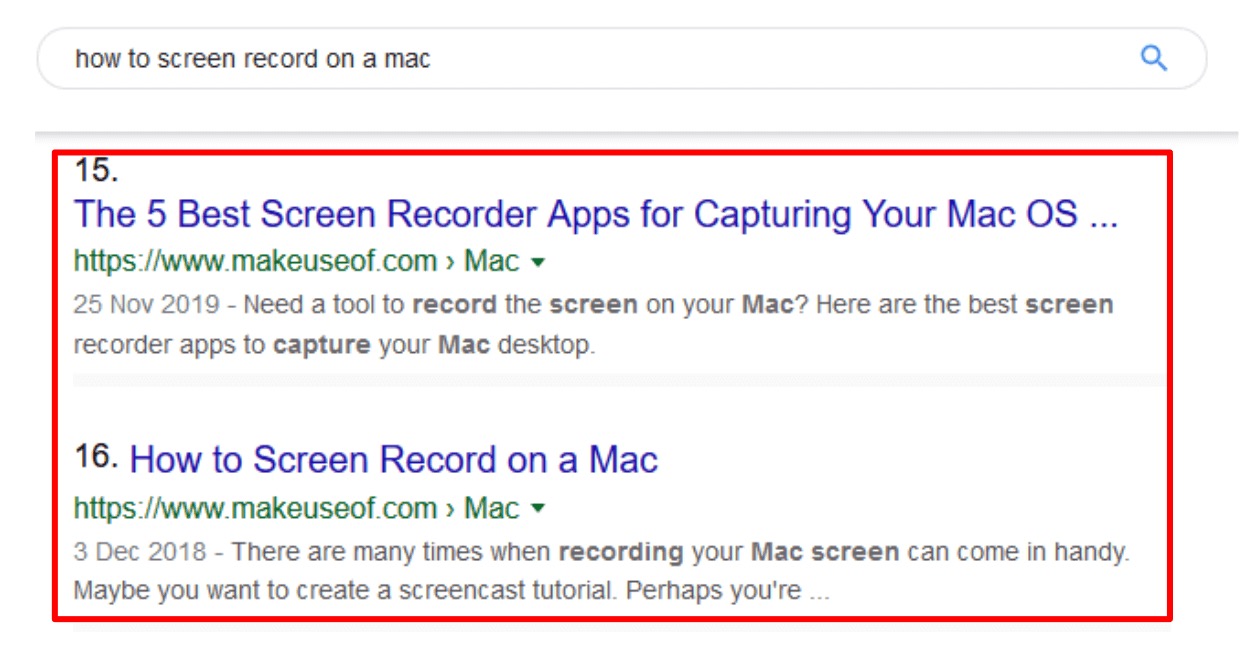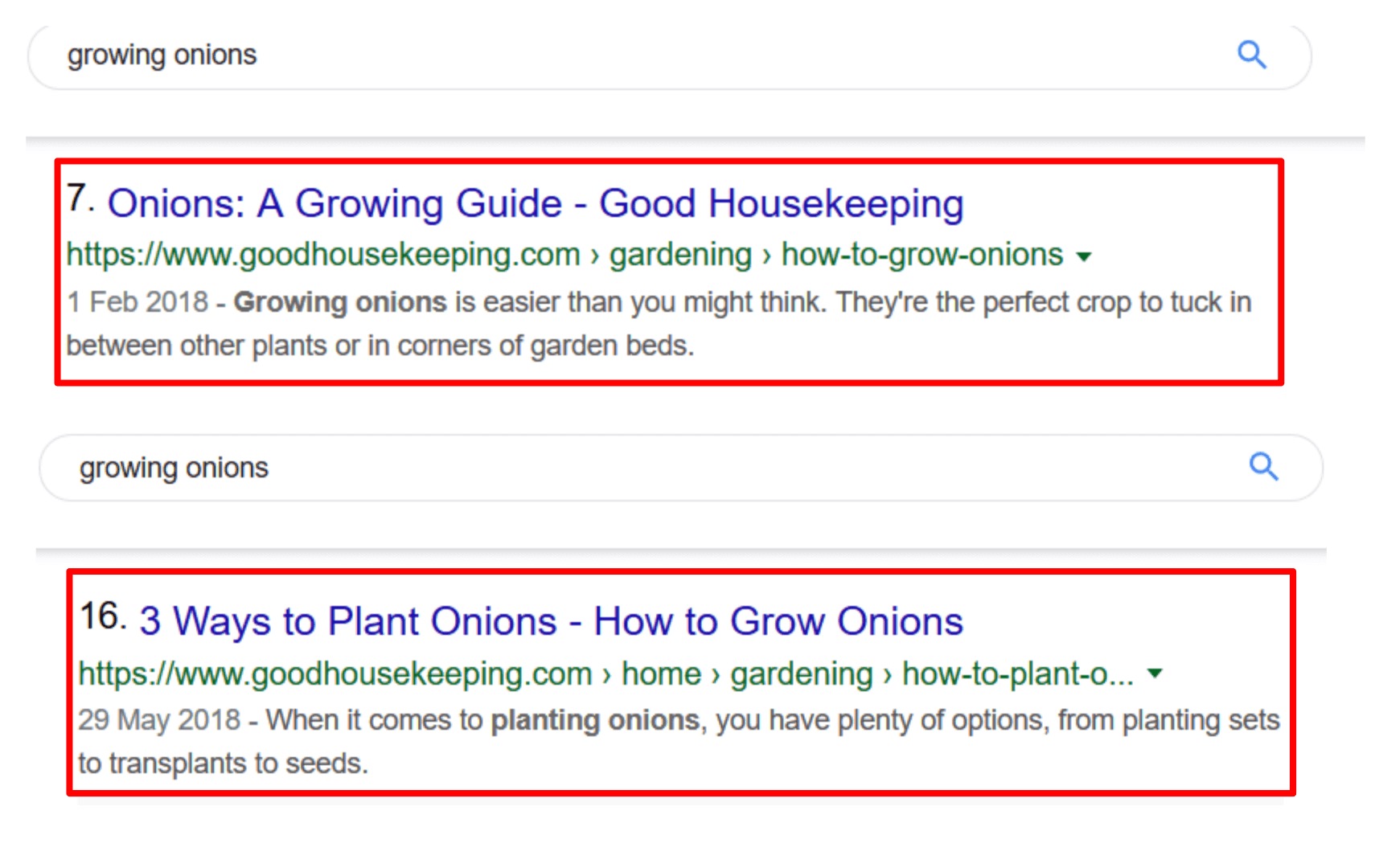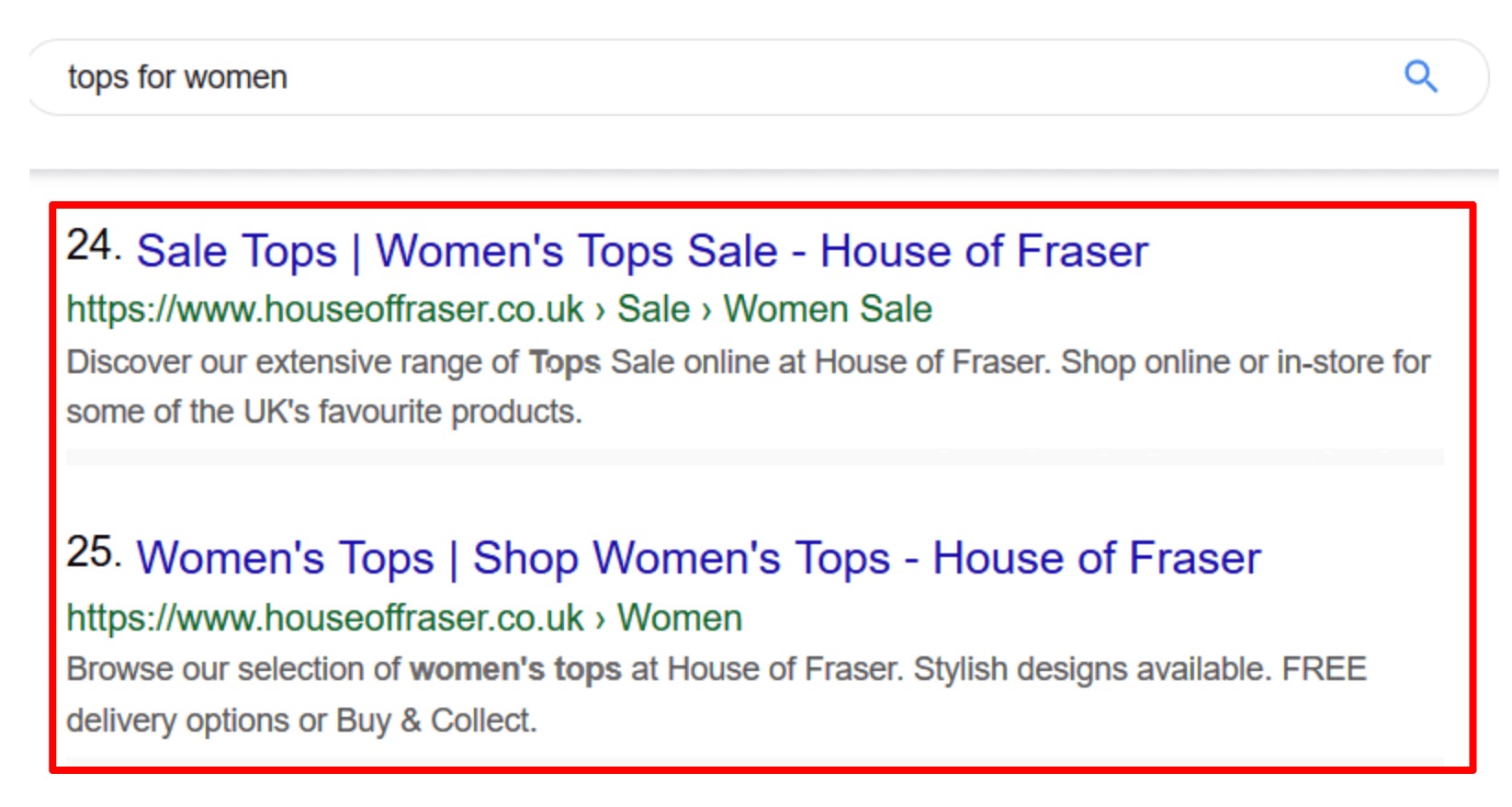Keyword cannibalisation becomes a huge problem when you have a number of pages ranking for the same keyword with a clear intent. This is normally the case with long-tail keywords:

Here is an example of two very different pages ranking for the same keyword. This can cause a number of issues for both these pages including:
- Lowering the CTR of both these organic search results, as clicks would be shared between the pages.
- Decreasing conversion rates on your site, if the wrong page is ranking higher in the results.
- Loss of potential link authority, as backlinks would be shared between similar pages on your site.
With all the issues mentioned above, you can guarantee that the ranking of both pages would be dragged down if they continue to compete against each other.
Keyword cannibalisation can also cause potential issues with pages not directly positioned together in the search results. For example, when you have a page ranking in position 7 and then another page ranking in position 16:

In this case, Google has decided that the top page is more relevant for this search query. However, it could cause potential confusion in the future for this query or others.
For this reason, over time you should continue to monitor minor keyword cannibalisation issues like this. However, if you do feel that the content is too similar and is affecting the other page, you might decide to take action to fix this straight away.
Keyword cannibalisation doesn’t just affect editorial or blog related content; it can also impact eCommerce pages like product category pages. Take a look at this example for the query ‘Tops for women’:

One page is for ‘tops on sale’ and the other page is for ‘women’s tops’ on their site. Both are clearly important pages on the site, but are directly competing against each other for this search query.
Ideally for this query the ‘sale tops’ page should not be ranking, allowing the general page on women’s tops to rank higher. However, since the content is very similar, Google has a hard time deciding on which one is more relevant to this query.
Keyword cannibalisation issues are not black and white. Sometimes they can be good for your site, other times they can be disastrous. The best way to describe the severity of keyword cannibalisation is though using a spectrum:

The keyword cannibalisation spectrum shows the range of impact cannibalisation can have on your site. Instances of keyword cannibalisation on your pages could sit anywhere between ‘good’ and ‘serious’ on the spectrum.
So, how do you know if keyword cannibalisation is a serious issue for your site? Simply put, it depends on the keyword intent. As we discussed in the above examples, keyword cannibalisation is fine for brand-related keywords, but not so much for long-tail queries. Before taking steps for drastic action, you might want to consult an SEO expert for their professional opinion on how to deal with keyword cannibalisation issues on your site.